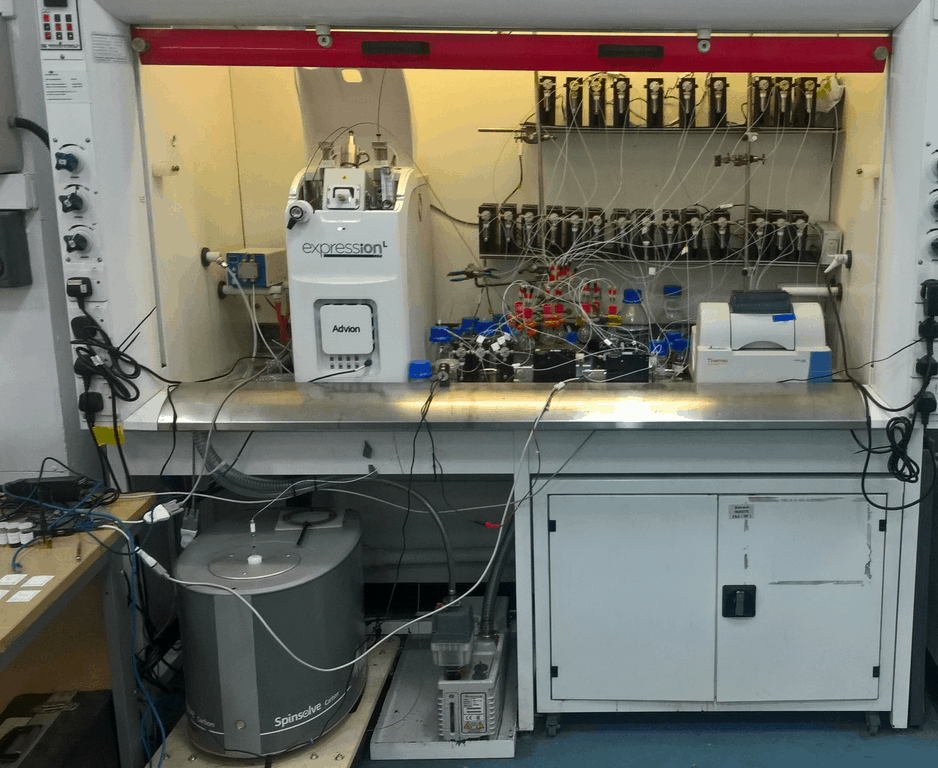The Glasgow team, led by Prof Lee Cronin, believes the technique will free chemistry researchers in the pharmaceutical and industrial chemical sectors from being confined to known databases and standard rules of organic synthesis when finding new reactions and molecules, potentially reducing the cost of discovering new molecules for drugs, materials and polymers, and for applications such as imaging.

In a paper in Nature, Cronin’s team describes a machine-learning algorithm inspired by “strategies based on chemists’ intuition”, which is enabled by binary encoding of chemical data They claim this can perform chemical reactions and analysis (in simulation) faster than they can be performed manually. It can also predict the reactivity of possible combinations of chemicals after conducting a small number of simulated experiments.
In trials, the robotic system was able to predict the reactivity of about a thousand reaction combinations with an accuracy of greater than 80 per cent after considering the outcomes of slightly over 10 per cent of the dataset. Furthermore, the team said, by using real-time data from the robotic system, these predictions were followed up manually by a chemist leading to the discovery of four new reactions related to the Suzuki-Miyaura reaction, which is used to synthesise polymers including styrenes.
“This approach is a key step in the digitisation of chemistry, and will allow the real time searching of chemical space leading to new discoveries of drugs, interesting molecules with valuable applications, and cutting cost, time, and crucially improving safety, reducing waste, and helping chemistry enter a new digital era,” Cronin said.




Swiss geoengineering start-up targets methane removal
No mention whatsoever about the effect of increased methane levels/iron chloride in the ocean on the pH and chemical properties of the ocean - are we...